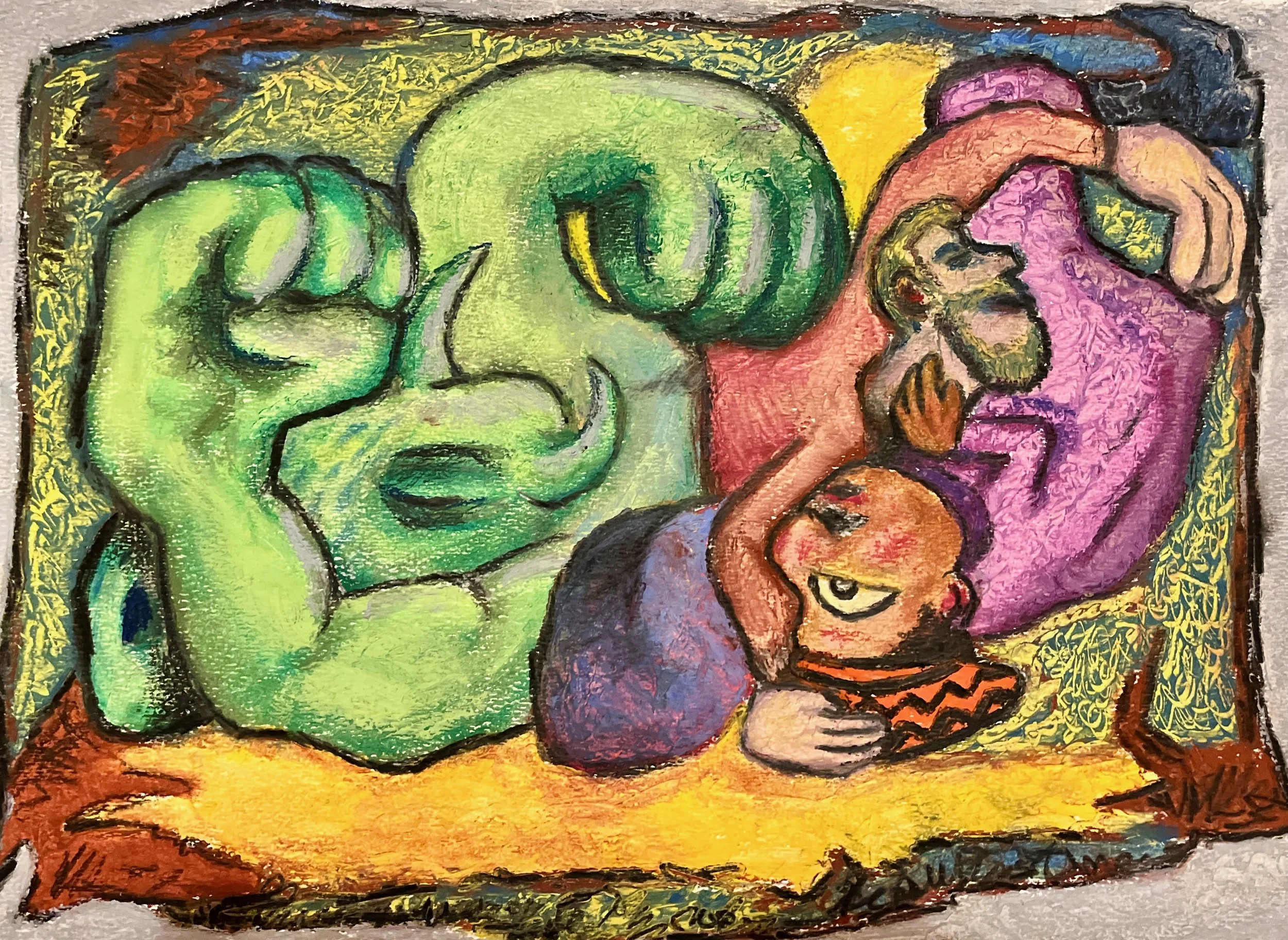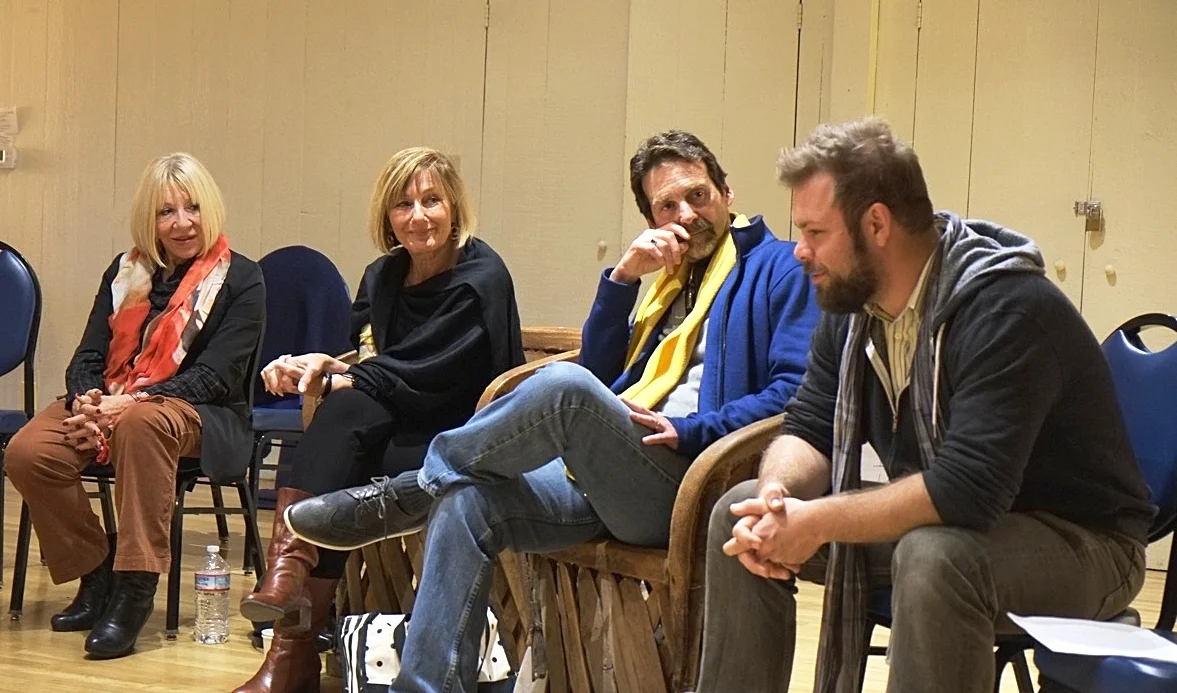Awakening to Racial Responsibility
/In this three-part blog series, I offer my perspective as a depth therapist who leads four weekly men’s groups in the Bay Area of California and a White person actively working to challenge my own racist programming. I see groups as microcosms for larger systems, such as our families, our local communities, and even our national and international communities. Thinking in terms of a small group is helpful because it’s personal, not abstract. If I hurt you or marginalize you in a small, ongoing group, I have to see and feel the impact. Further, I have to figure out a way to be in relationship with all that comes up in me while staying in relationship with you. That’s a lot in and of itself, and in group, we go even deeper yet. Each of these articles offers some things group has highlighted for me that shed light on healing processes and the barricades that get in the way. While I think these connections could be valuable for everyone, my aim is to reach fellow White people to highlight how racist dynamics can show up within any system, and how we can cultivate more empathy for Black pain, while taking up our work to challenge our own blind spots and complicity with racist systems. You can find Part I on Scapegoating here and Part II on Acknowledgment of Racial Trauma here.
Photo Credit: Andrew Burton
In long-term therapy groups, we have the chance to get to know one another week after week in a very intimate way. Over time, each group develops different implicit stances toward one other that can be palpably felt. Sometimes there’s hostility and tension; at other stages, there is a tangible feeling of warmth and connection.
Group members forge intimate bonds with one another, usually after being in a group together for a good stretch of time. In this stage of a group, members tend to show a natural curiosity toward each other. They ask about each other's lives, want to hear updates on major life events, and hold each other's goals with a great deal of importance and care. In a way, they hold an implicit sense of responsibility toward one another—not in an obligatory “Ugh, I guess we should probably ask Jim to show his baby pictures again” kind of way, but in an “It’s genuinely important to me because it’s important to you” kind of way.
In other words, a positive sense of responsibility, where I get to look out for you because we are deeply connected.
By contrast, in earlier stages of group the caring is often more detached: people share news from their lives and the group will nod in silence, bearing witness to the importance, but holding back from full investment in knowing more, getting curious, or relating from their own life experiences. As group leaders, we don’t blame the group for being more avoidant and less invested at this stage of group development. We recognize it can take time for people to develop a sense of genuine responsibility and care for one another. Groups often need to survive a series of trials, usually in the form of conflict to get to genuine intimacy.
But even then, not all groups progress to a stage of intimacy as described above. It is every group’s (and group member’s) choice to either allow each other to matter more or to keep a safe distance by remaining avoidant.
*****
Picture yourself as a long-standing group member of a process group. You’ve been in this group for years. You know all of the other group members well and feel quite safe and comfortable getting vulnerable with them. This is the only group therapy experience you’ve ever known, and it’s hard to imagine your life without the comradery of your fellow group members.
Now a new member joins, and you find out they’ve had a horrendous series of group experiences that left them feeling quite wounded in group spaces. What is your sense of responsibility toward them in this group? You didn’t personally do anything to hurt this person or make them feel unwelcome, yet here they are joining your group, and their pain is palpable.
Do you have space for this person’s experience to have a real emotional impact on you?
Do you find it hard to believe this person’s experience without questioning their story or their reaction?
Is it harder to fully empathize because this person is not part of the group you’ve come to know and identify with?
I’ve been thinking of our current cultural moment in these terms: one group, Black people, are telling a larger group, White people, that they have been abused, humiliated, and disproportionately killed over and over again by a third group, the police.
I believe the same questions I asked of our hypothetical group member above arise frequently for White people and deserve time to unpack and explore. Much of our collective racial programming tells us that White pain is more important than Black pain. We have been conditioned to see White lives as inherently more valuable than Black lives.
This programming can be a barrier to feeling our responsibility to stand in solidarity with Black people.
*****
I’m concerned that American culture has been gradually sliding toward the avoidant, less invested-in-others stage of groups. There are so many tools to help us spend our time on things other than direct human relationships, and more emphasis on individual experience and indirect contact via social media spaces. I feel it in myself—even 10 years ago, I made more room in my life for spending quality time with friends and family than I do now. The further we move into the avoidant position, the easier it is to cut ourselves off from natural feelings of empathy, care, and our sense of shared fate with others, especially others whose life experiences or cultural identities have been systematically dismissed. It’s almost as if our empathy muscle begins to slowly atrophy and die the longer it goes unexercised.
Conversely, I’ve noticed that as groups move toward greater investment in one another, it’s like a light comes on. Group members begin to freely share their sense of each other and hear the ways they impact each other. Empathy flows easily. I’ve seen group members tear up when they find out that something they said last week made a tangible impact on another member. It seems to me that the more we allow ourselves to be in full contact with each other, the more we begin to feel how much we matter to each other. And when we matter to each other—I mean really matter, in an emotionally felt way—we tend to feel an implicit responsibility to look out for one another, to acknowledge each other's pain, and to do what we can to help each other to heal.
When we say the words “Black Lives Matter,” do we feel it in an emotionally invested way?
If we don’t, that is a signal for us to double back and unpack what is preventing Black lives from mattering to us. As Robin DiAngelo says, if you’ve lived in the United States, you’ve undergone at least some degree of White supremacy programming. The challenge is to not look away, but towards—to dig deep and unpack our biases in order to see them for what they are.
If we do, I believe we’re more likely to take an active role in standing up to fight alongside Black people. This is the meaning of responsibility—a genuine attitude of care, not an obligation or social performance
Over the past two months, we’ve entered a powerful window of cultural reckoning, during which many White folks have been stirred from positions of avoidance into awakening to the realities of racism embedded in our culture (and ourselves). Now is the time to unpack the racist messaging that tells us that White lives are more valuable than Black lives, a critical unconscious barrier to feeling that genuine attitude of care and responsibility.
As James Baldwin told us, we’ve become far too accustomed to seeing racism as a “Black problem,” when racism has always been a “White problem.”
Perhaps this window can be an inflection point that keeps us continuing to become more connected to how we really matter to one another.
If you would like to get involved in standing up for racial justice, here are a few resources for ways you can get active:
SUPPORT:
A List of 450+ Black-Owned Businesses to Support:
https://www.websiteplanet.com/blog/support-black-owned-businesses/



